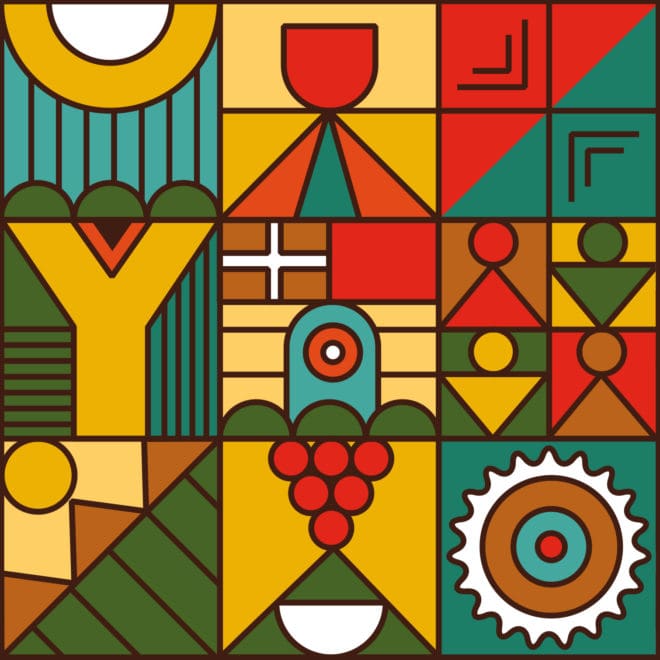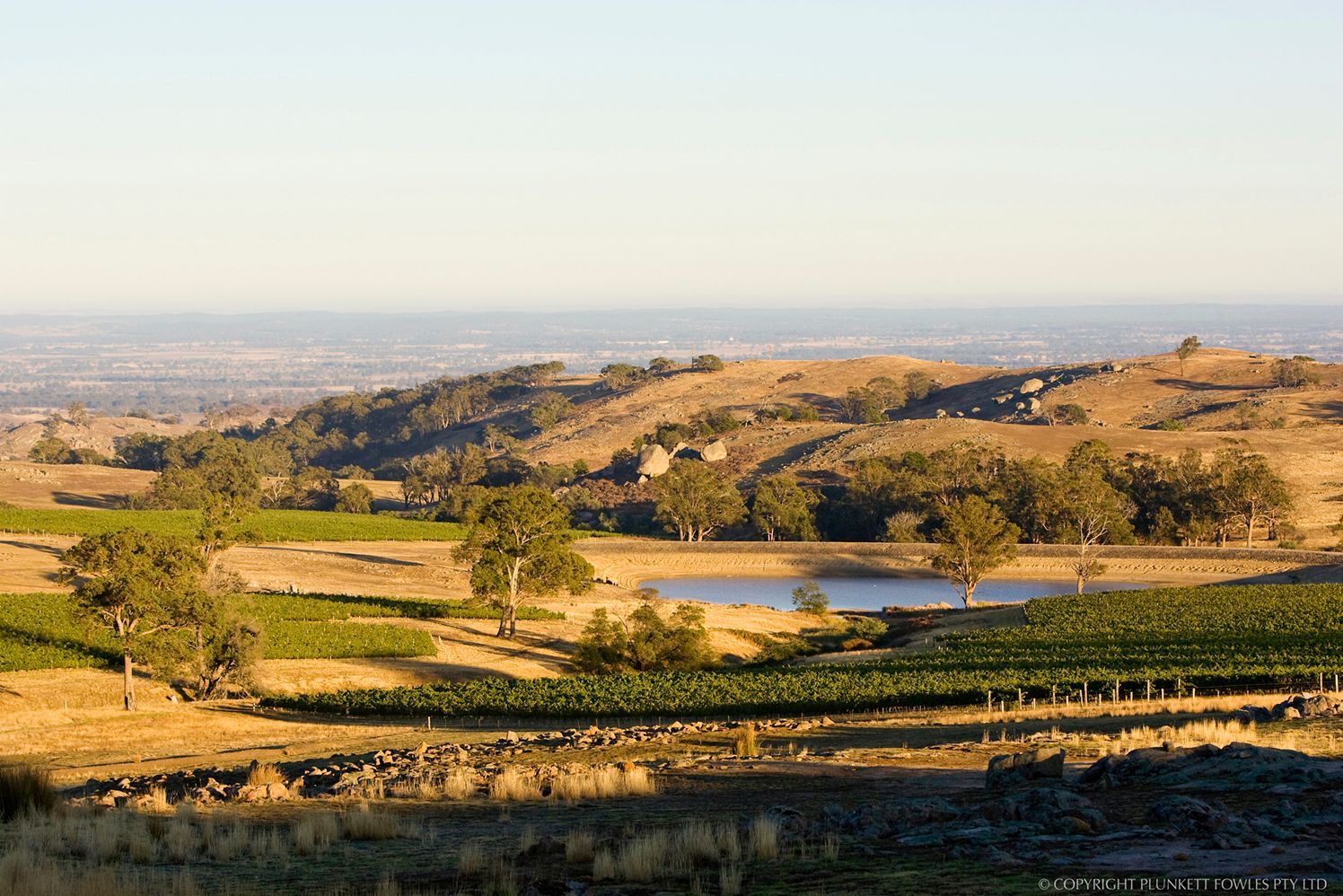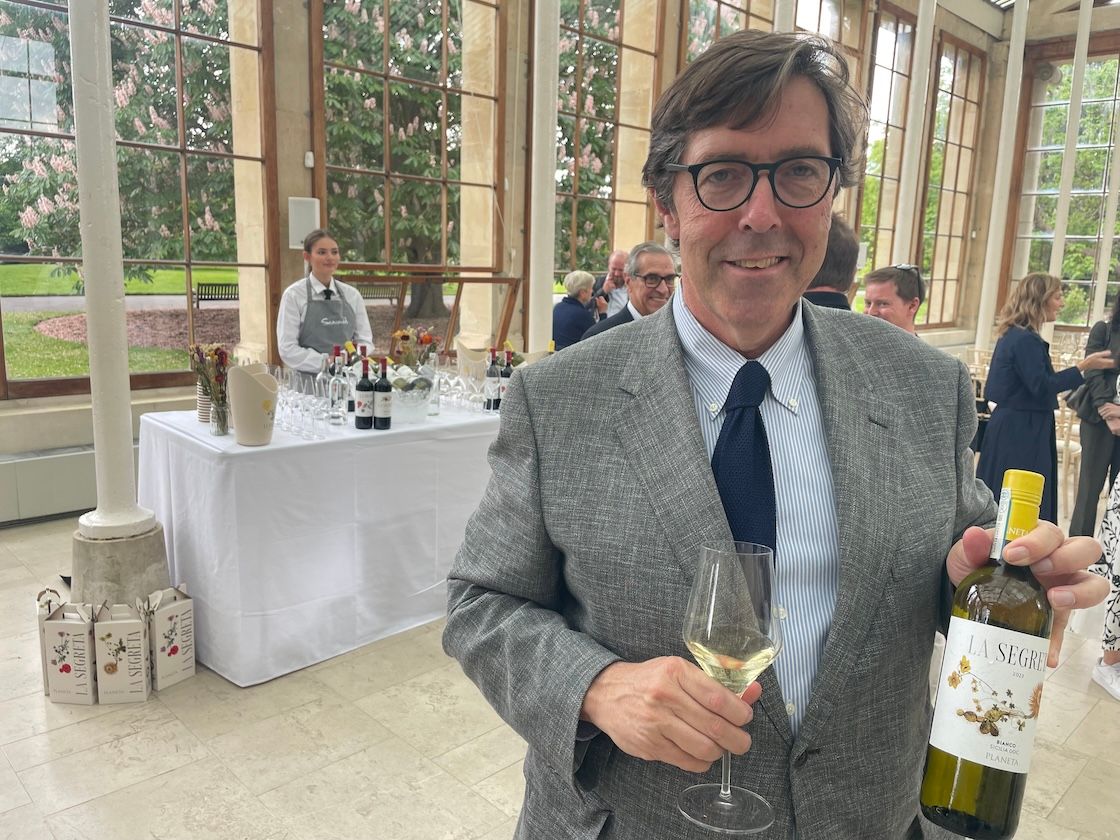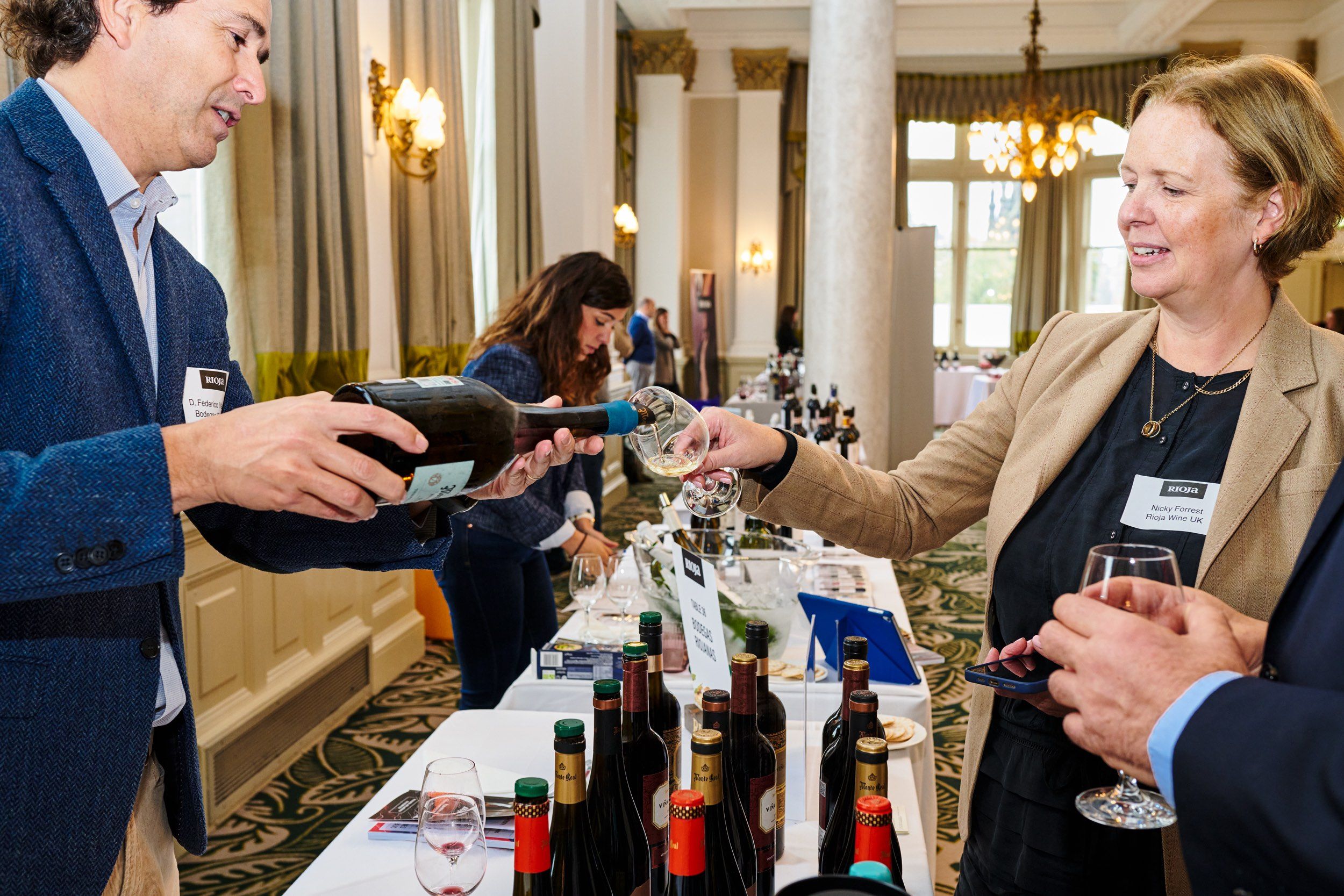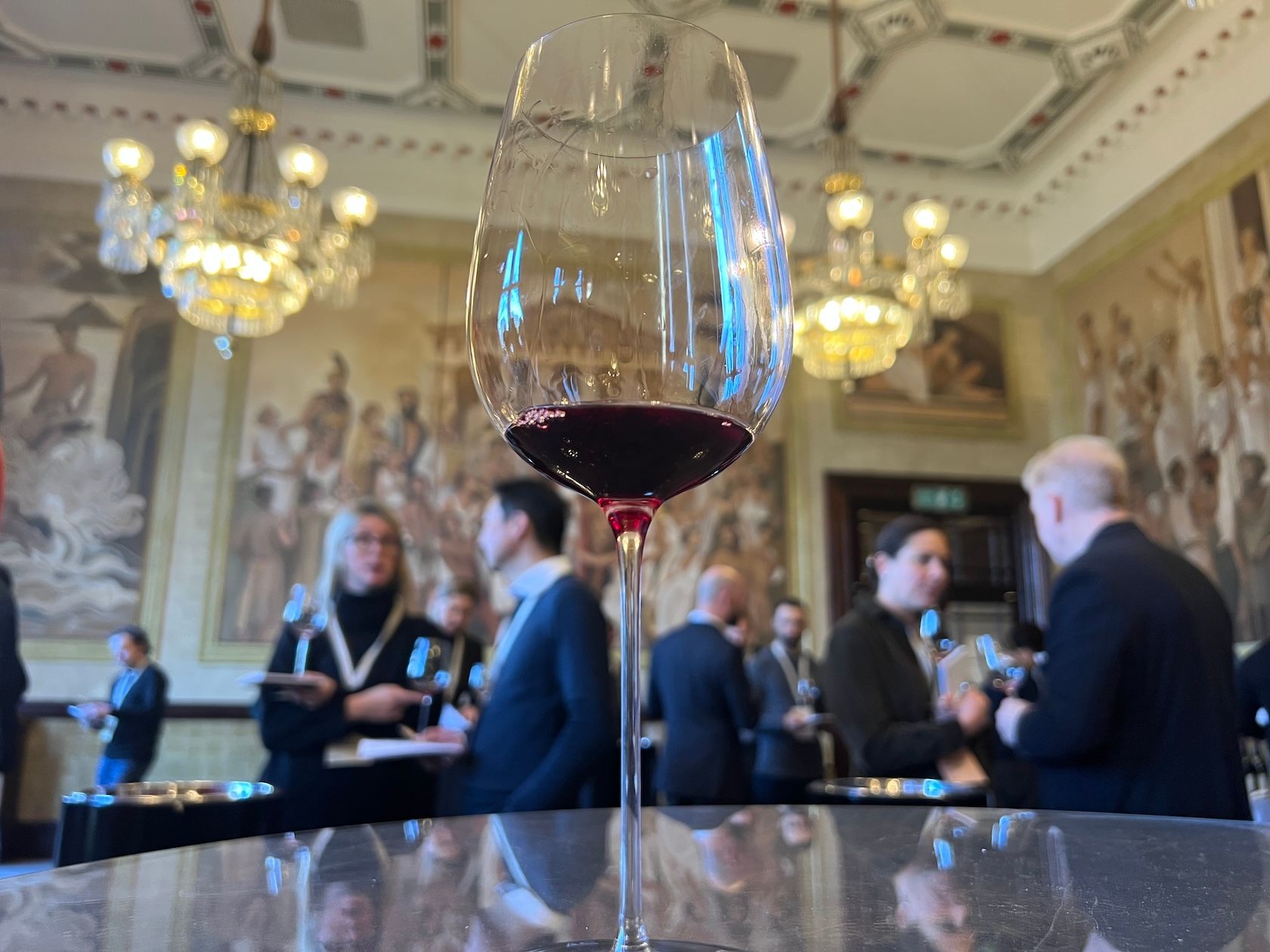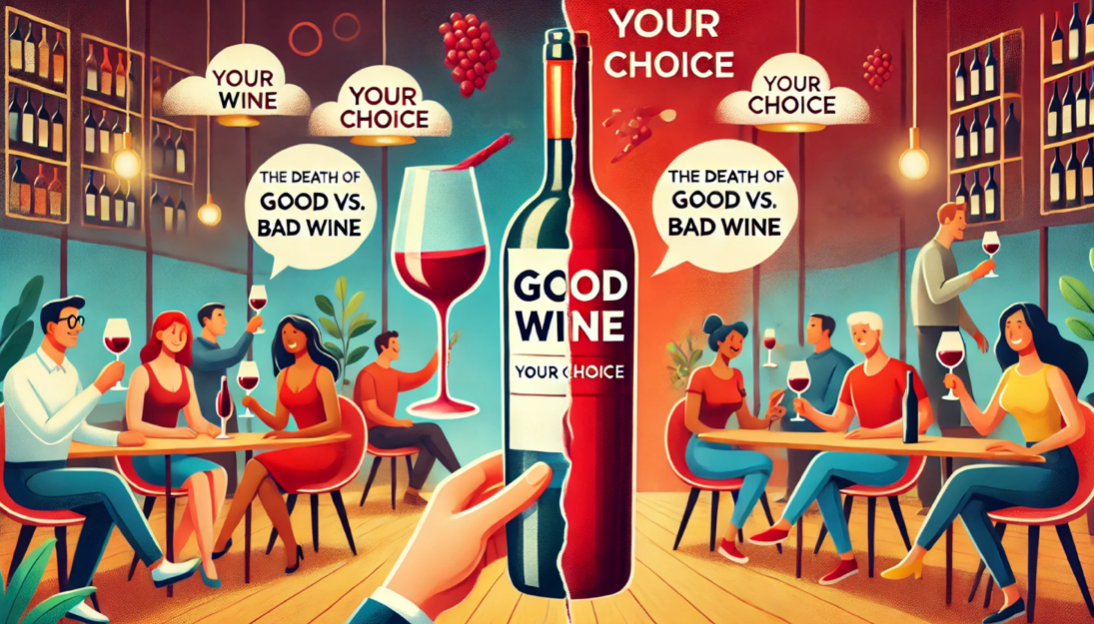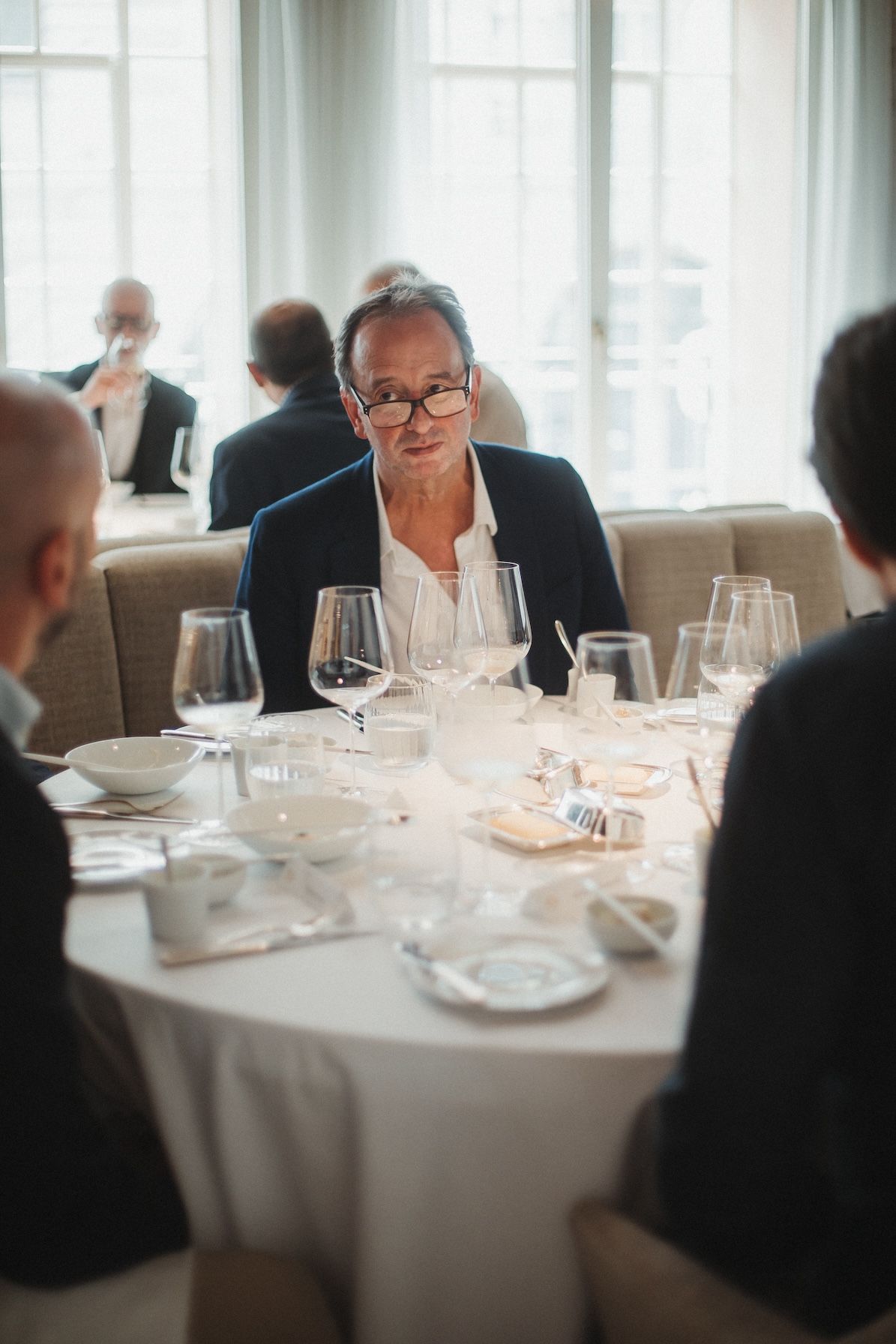Kunye is a wine brand that hopes to encapsulate the changes that are needed both in South Africa and around the world.
“Let me tell you a story… I have taken minibus taxis to Stellenbosch and you get to the point where you suddenly realise it’s changed to agricultural land. You see this beautiful landscape: more greenery, more yellow fields, and just before you enter Stellenbosch, the taxi goes up through a township called Kayamandi. A lot of people that work in the wine industry and work in wine farms are from Kayamandi. There are established houses made out of bricks, but there are also tin shacks in that area. The colours are incredible – bright colours, washing hanging on lines, kids running in the street.”
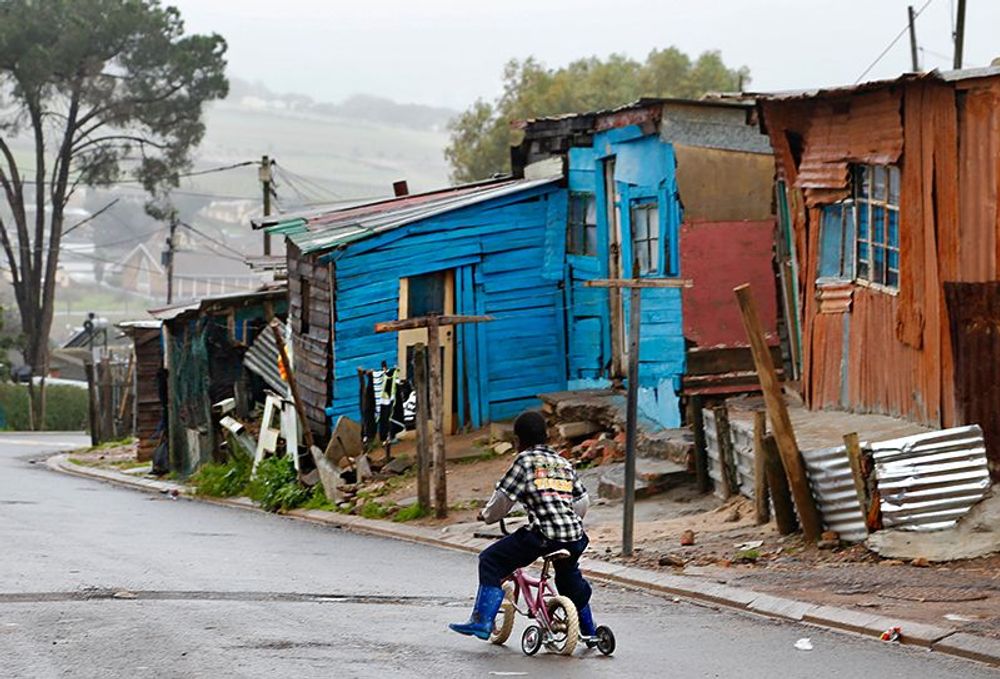
Kayamandi is home to many of the workers that work in South Africa’s wine lands that are part of the inspiration for the new Kunye wine brand
“As you drop down into Stellenbosch you get to see that beautiful view – but actually, Kayamandi is just as beautiful. Townships are as beautiful and more colourful in so many ways. I wanted that to come across in this wine brand because that is my experience of Stellenbosch and of wine farms. You don’t always see the people that work on the wine farms when you’re visiting a winery but they’ve often lived there for longer than the people that own the wine farms, their great grandparents have worked on these farms and we enjoy speaking to them, interacting with them, seeing what their lives really are like. I want to include them in this story and find out how we can make them part of a product that seems to aim itself exclusively towards a certain, limited group of people. They’re important to the story.”
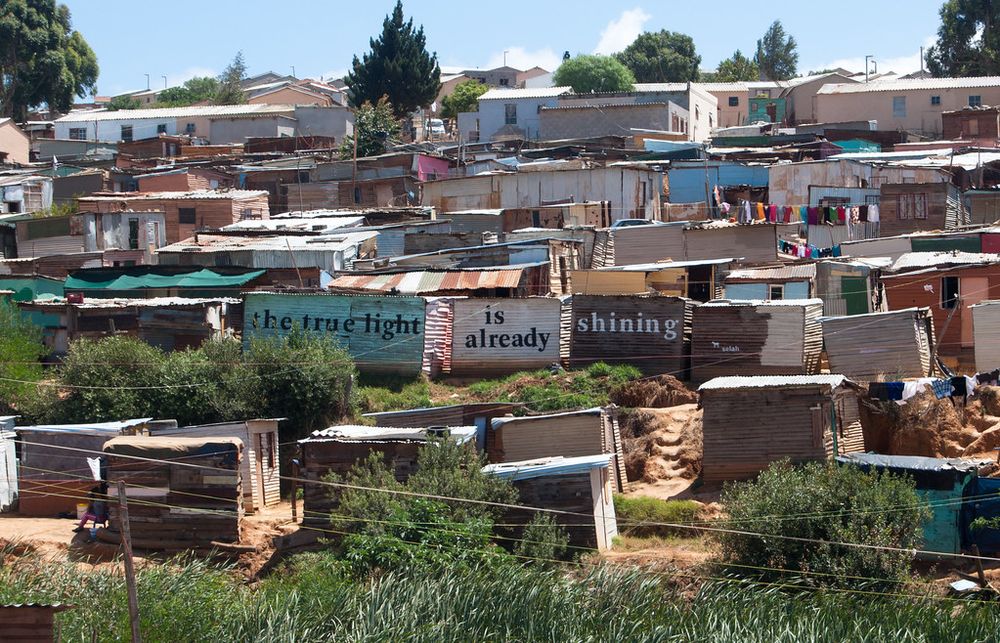
Those are the words of Inika Minnie, one half of new South African wine brand Kunye, which has been founded to support all South Africans progress in the wine trade, and to see tasting rooms diversify in South Africa.
How the Kunye brand has come about is an unlikely story: a wine loving graphic designer in South Africa meets a Master of Wine based in Beijing on Instagram, and they decide to make a wine brand. But it’s the story of Kunye. Its founders, Inika Minnie, aka @CapeoGoodWine on Twitter, and Cassidy Dart MW, have never had the chance to share a glass of their wine in person. They haven’t even met, despite estimating that they’ve spent around 500 hours talking together from afar.
Brand with a mission
Kunye, which means “together” in the African language of Xhosa, is a new wine brand, born out of the pandemic, with a big mission and a huge heart. It was launched, in part, to help struggling wine farmers in South Africa to shift their tanks after an incredibly difficult year. But it was also launched to create social change. Proceeds will be put back into a scholarship scheme to help wine industry professionals progress in their careers. The aim is to empower those who normally can’t afford education, and to start diversifying South Africa’s tasting rooms.
The situation in South Africa has looked bleak over the past year. When we chat, Minnie tells me that they have had “exciting news”. They are now on level one which means people are allowed to purchase wine on any day of the week. It’s hard to imagine what it’s been like. No one can have failed to have sat with their jaw hanging open at the scenes Bruce Jack described for the Buyer in January. If you’re like me you will have had one burning question: how can we help? Buying a bottle of this wine is a small way to start.
How it started
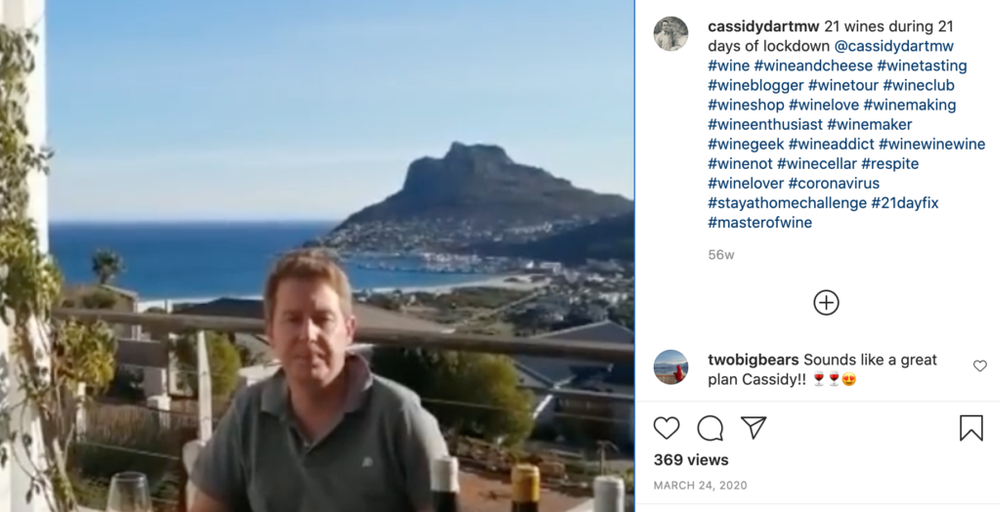
Cassidy Dart MW with one of his 21 Days of Lockdown videos on Instagram
Dart and Minnie, met over Instagram, after Dart began a “21 days of lockdown” video series showcasing South African wines. He was stuck in South Africa with his family at the start of lockdown.
Drawn together by a mutual desire to get more people into wine and open up the industry, the pair started running introductory Instagram tastings. “Somehow Cassidy got me roped into actually running an online wine course,” jokes Minnie, “I was hoping to be an attendee sitting back and enjoying my glass of wine.”
Their tastings were informal, but not without their problems. Viewers in South Africa were facing alcohol bans and dealing with load shedding (planned, localised power cuts to help prevent country-wide blackouts when there isn’t enough power). “But they tuned in, week after week,” says Minnie.
The ebook
Minnie started illustrating their wine training for fun, as they taught. By day she is an identity designer, working with smaller companies to help them form a brand identity. “Unbeknownst to me, Inika started bringing the course to life visually, and then presented it to me as a fait accompli at the end,” marvels Dart. Attendees had started asking for their presentation slides, so they decided to turn the resources and Minnie’s illustrations into a book: Wine Wise: (some of) the stuff you always wanted to know about wine, from a South African Perspective.
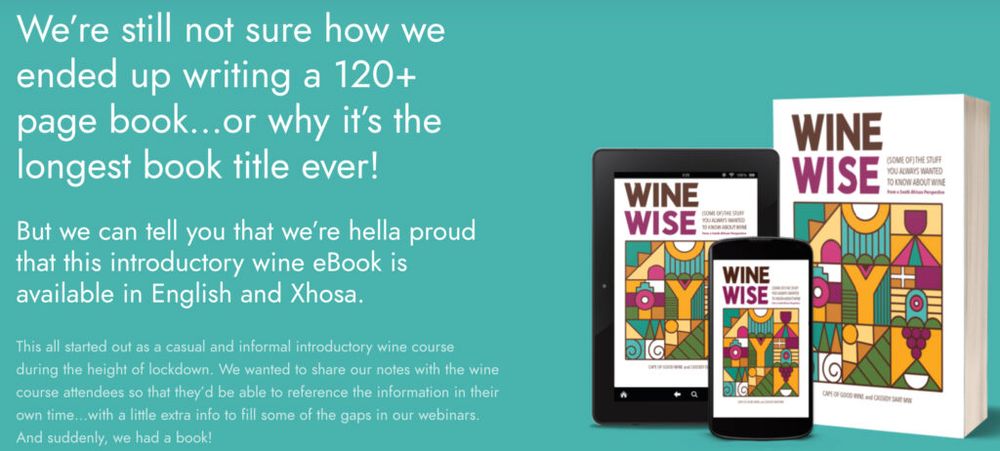
The book that Inika Minnie and Cassidy Dart MW have produced is also available in the African language of Xhosa
The book is a beautifully-illustrated digital wine manual covering the fundamentals: wine history, viticulture, winemaking, wine styles, serving wine, tasting wine, pairing wine with food, and a deep dive into South Africa’s six most popular varietals (Sauvignon Blanc, Cabernet Sauvignon, Chardonnay, Syrah, Chenin and Pinotage).
More than a wine bible written from a South African perspective, the book is also available in one of South Africa’s many indigenous voices, Xhosa. The book was translated by PHD linguistics student Mlondolozi Pute, and is the first consumer-facing wine book in South Africa’s history to be translated into an indigenous language other than Afrikaans.
It is this that Dart is most proud of. He says translating the book was an important step in their efforts to open up wine to a broader audience. “If the South African wine industry wants to survive long term as a bastion of culture, it needs consumers who aren’t white middle-class men, drinking wines in their own ivory towers. If you want more non-wine people drinking wine, you have to have a way of connecting with them and making them realise that wine is for them as well. Otherwise, words like diversity and interaction and all of that are pretty hollow.”
The scholarship
Gaining momentum, the duo decided to take their work one step further and create a scholarship to support wine trade employees. Minnie says: “Both Cassidy and myself firmly believe in education. It’s something that you can’t take away from somebody. Once they know something they know it. Take the shirt of someone’s back, but what’s in their brain is theirs. And we feel that you could grow the number of wine appreciators by educating them and teaching them that there is so much to learn about wine.”
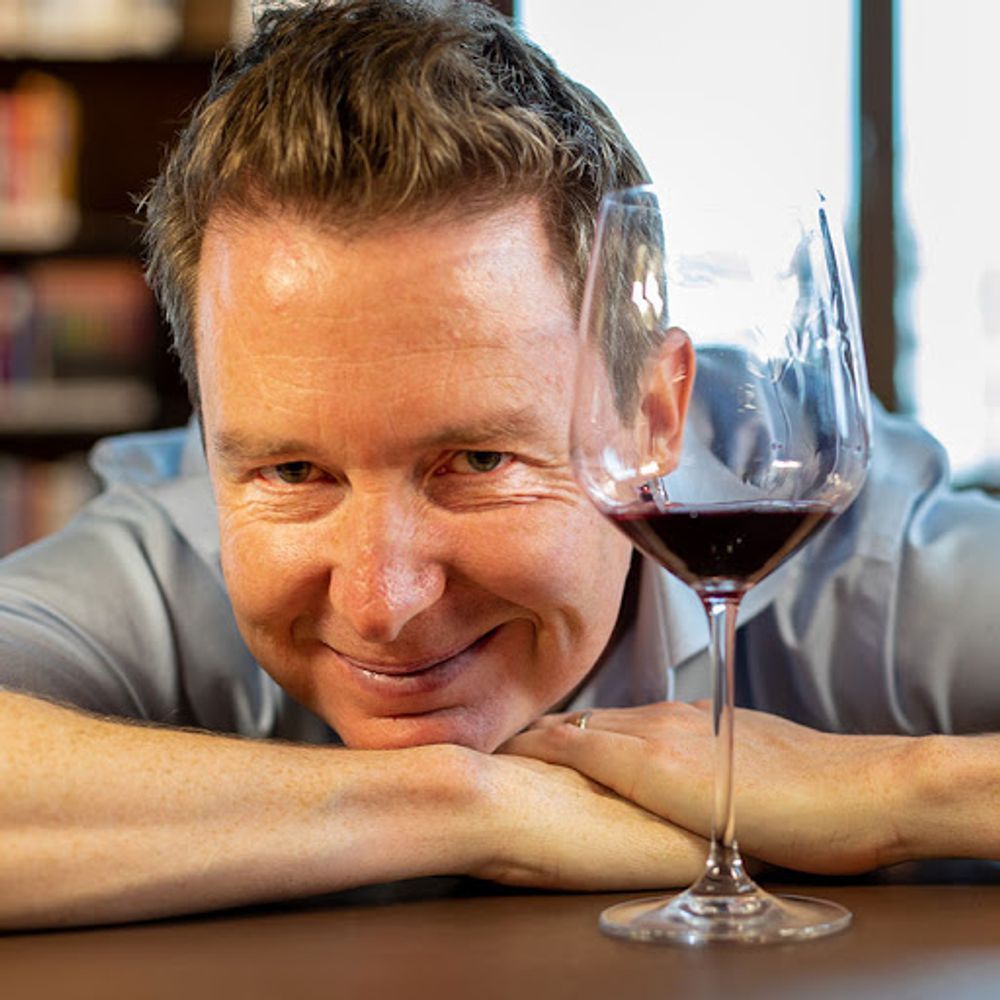
Casside Dart MW hopes its scholarship can help change attitudes towards alcohol in South Africa
Applications are not yet open but they hope to raise enough funds to begin later this year. Funding will be aimed at those who have already worked in the trade or shown commitment to wine or hospitality but can’t afford further training in their field. Recipients will be able to choose how they spend the money. Minnie says: “I feel strongly that we should empower the person applying for the scholarship to make their own decision, follow their own path.” This could be through WSET qualifications, the Cape Wine Academy, an oenology degree, or certification for vineyard workers. “Supporting vineyard workers is something that we would also really like to focus on,” says Minnie. “Those people have a lot of skills that should be acknowledged. They teach us how the vineyards work. If there’s a way for us to support them it would be incredible.”
“South Africa has got a torrid, complicated history with alcohol and wine more generally,” says Dart. “One of the things that’s not perhaps that well known outside of South Africa is there was something under apartheid called the Dop system, where workers were paid with cheap wine. This created a huge problem of alcohol foetal syndrome amongst wine communities, vineyard workers were decimated because they were basically given jug wine as payment.
“If we can try and figure out a way of developing a culture of wine drinking, of understanding and respecting the beverage, amongst consumers but also having more diverse people across the wine industry, I think that that’s really how we change it. Education of course is not the only way of doing it, but it is one way of doing it.”
Minnie says that the costs involved in education are the biggest barrier to progression for South Africans. Paying for a course is often only half of the problem too. Some may not be able to afford lunch once they arrive at the training day, or have reliable internet at home to allow them to attend Zooms and access online resources. The Kunye scholarship aims to support students holistically in their training by covering these extra costs too.
Minnie says: “There are all these little bits and pieces that need to be filled in so somebody can comfortably focus on just their studies. Worrying about how you’re going to get to a lecture, or whether you have electricity to study that night – those are realities in South Africa.”
Funding the scholarship
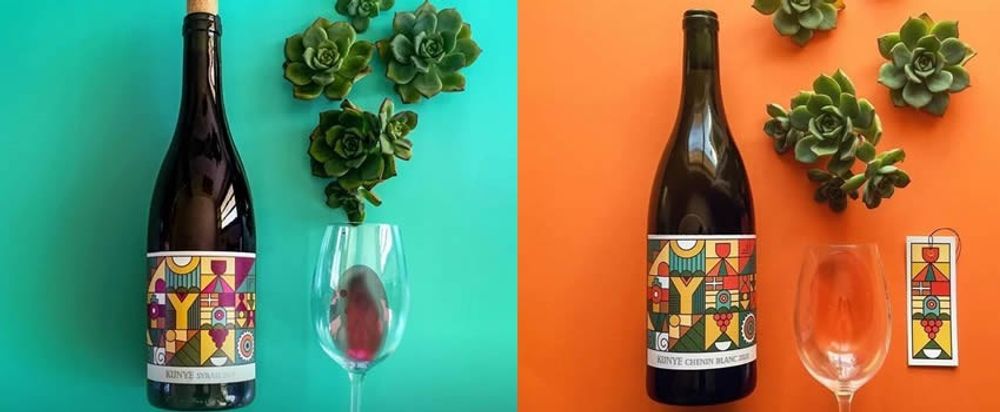
Kunye means ‘together’ in Xhosa and captures the spirit of a brand that hopes to bring people together through wine and education
Kunye came about partly as a way to further the work they’d put into the book and help fund the scholarship in a sustainable way. “Both of us just felt there was a real lack of diversity amongst wine brands trying to engage with non-wine drinkers, and amongst professionals in the industry. We felt that a good way of addressing that issue would be to create a story, a community, and a brand that could encourage people to drink wine or learn about wine,” says Dart. Kunye means ‘together’ in Xhosa, and was chosen by Dart’s son.
In the midst of alcohol bans where Minnie says the wine industry was in “panic stations”, they decided not to approach winemakers to ask them to buy or support the book. Instead, they created their own brand using Dart’s contacts and knowledge of the trade. “It’s prohibition, it was like 1920s US,” he says. “So at that point, we decided to jump into a wine brand as well.
“We didn’t feel it was the time to go and ask big wine brands for support, and we wanted to actually support the farmers and the wine producers.” He adds, “That said, it’s pretty stressful when you have to buy a whole bunch of wine and figure out how you’re going to sell it.”
The range
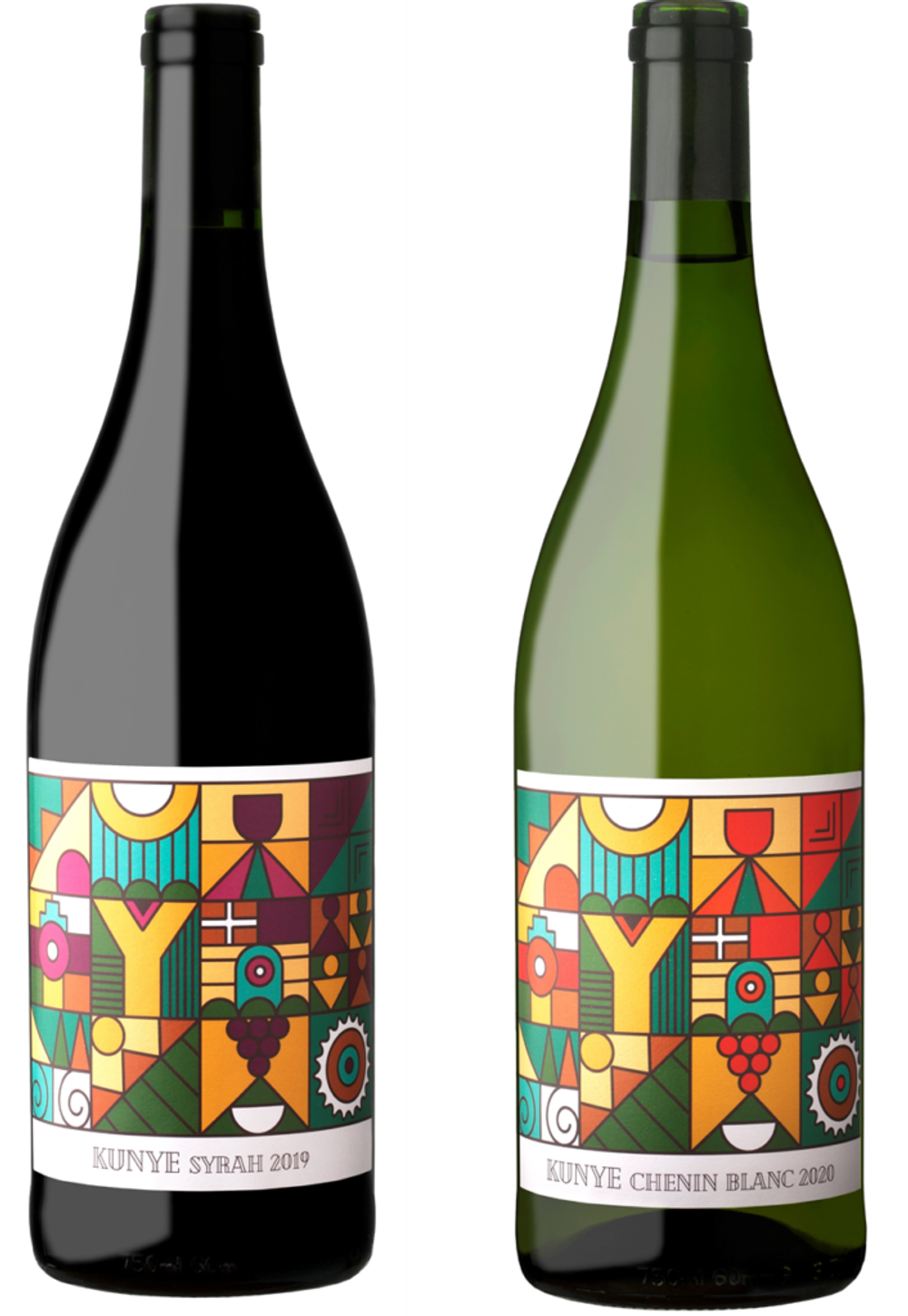
A Syrah and a Chenin Blanc are the two first wines in the Kunye range
The range currently consists of the Kunye Chenin Blanc and Kunye Syrah. Finding the wines was a challenge as wineries were closed to visitors and Dart was now in London trying to make his way back to China. They tasted samples together over Zoom but Dart says they knew what they were looking for: “The point about this was to make an inclusive wine brand, so the wine had to stack up in quality but obviously it had to be at a price point that people could buy it.”
“We knew which region we wanted those wines to be from, we also knew which varietals we wanted to focus on,” says Minnie. “We also chose to support a family-owned vineyard because we liked that idea of being able to support a family and their workers at a time when they weren’t sure what would happen with their surplus wine, it wasn’t moving in South Africa. We felt good about that.”
Minnie designed the brand’s bold, bright labels to represent South Africa’s diversity, from the hot sun to lush green mountains, to diversity in its people and languages. “One of the things I know that I respond to on a wine label is when it tells a story, and this is exactly what the Kunye labels do,” she says. “That’s why there’s so many blocks, because there are so many stories to tell and try and fit in: The story of how and where wine started in South Africa, and what it can become in South Africa too.”
There’s a small cog in the corner of the labels which represents her wish that “we can come together, put aside all our differences and work together”. She says, “Sharing a glass of wine with people does bring us together, we see it all the time. It’s a lovely way to connect with each other and understand that we do have more in common than we have differences.”
Diversifying South African tasting rooms
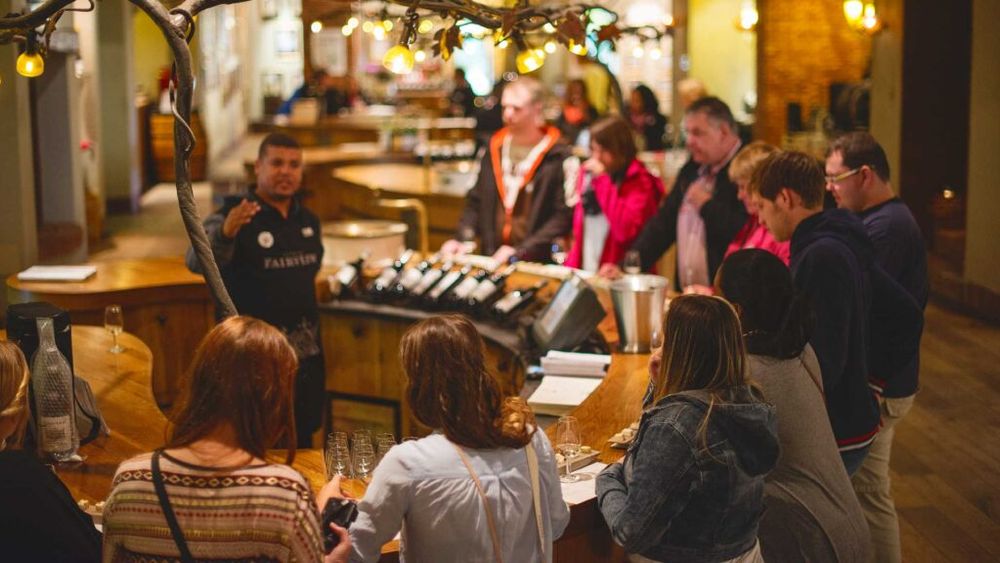
Dart and Minnie also want to encourage more South Africans to visit wineries and tasting rooms
Minnie says she notices the lack of diversity in the South African wine trade most explicitly at wine tastings and events. “Once you notice, you really can’t stop seeing how in a country where 90% of the people are of colour, there are only a handful of people of colour at these events. I was recently at an industry launch, and I realised that I really was the only person of colour other than the staff working.
“I think that we have also progressed to a point where we’re not as obsessed with making sure that we are a rainbow nation, which is a good thing. It’s a healthy thing. You should choose people by their merit. But taking a look around the room, you should also realise why it looks like this: It’s because people don’t all have the same opportunities.”
As one of South Africa’s only MWs, Dart feels he has a huge opportunity to use his platform as an ally. “What I’ve learned is that I have value to add for South Africa. There are only five South Africans who have ever passed the MW. I want to add something to the community. I can’t change who I am. I can’t change my background. But as long as I encourage more diversity and changing things for the better, I think I can be a part of the conversation. We can’t change the past. But we can change the future and make it better. It’s my role to make sure in 20 years’ time there’s more diverse people engaged in wine culture.”
The future for Kunye
What impact do they hope Kunye will have had in the next year or so? Minnie says: “I’d like to have made a meaningful difference to someone’s life through the scholarship, to be able to follow someone’s path and see how we have helped them achieve a dream. I think where Cassidy and I are both coming from is that we are able to help, so how can you not help? Why not try and make a difference?
“It would be lovely to say that we have changed the mind of Africa and we have all this diversity in tasting rooms! But that will happen slowly. To start to see that change I’ve been working on the idea of working from within the communities, setting up introductory tasting classes where people get to be guided through the wines and understand that you don’t just knock down a giant gulp, finish the glass, and not give it any more thought. It’s about instilling the understanding that winke (and all alcohol) doesn’t need to be something that is abused, it can be something that you enjoy.”
Dart add: “What would be a win for me is if we can have even a small amount of people who feel that wine belongs to them. If you sat in a room with your contemporaries as a middle class, non-white South African, and you had a glass of wine, would you feel the wine industry or drinking wine belonged to you? Or do you feel that it is a white man’s pleasure? That’s what I’m really passionate about.”
- Kunye is now available in the UK through the new Propeller wine import business.
- You can find out more about Kunye and download the ebook here: https://thewinewise.co.za/
